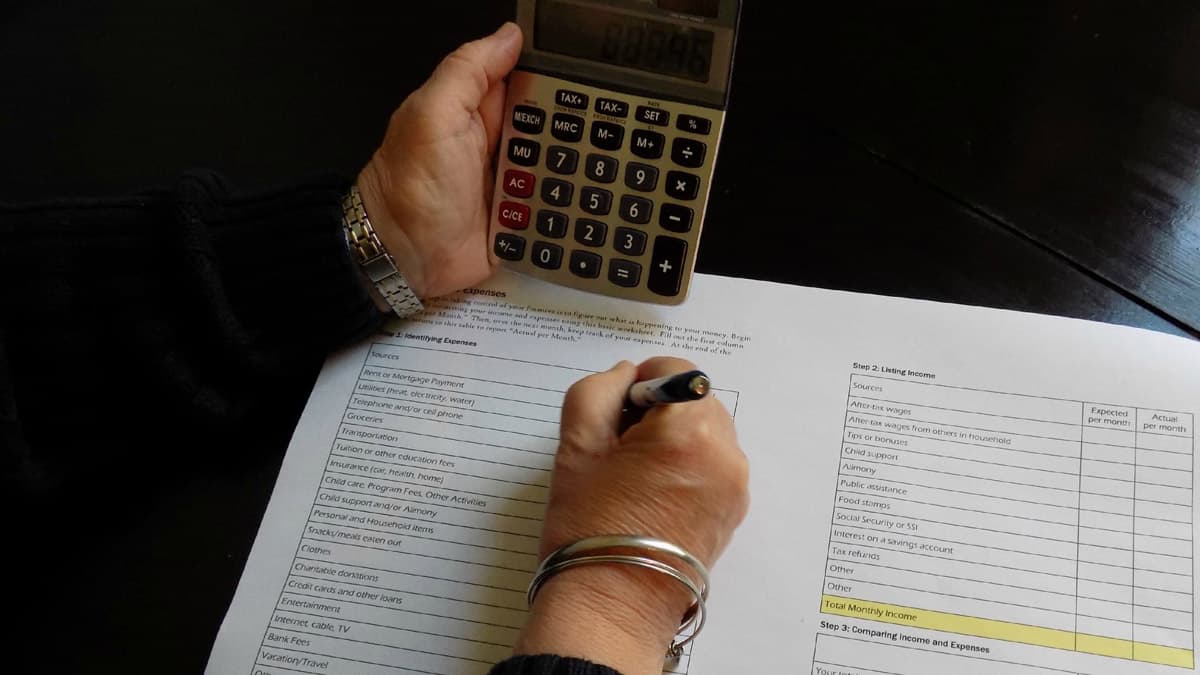

This way you still get a good overview of your regular expenses. This budget calculator is designed to help you devise a monthly budget based on your current gross income, your expenses across 11 different categories, and your savings and investments. However, it is not a problem if you do not enter annual expenses here. If you can, calculate expenses you make once a year down to the month. To leisure spending we count spending from 'mobility', 'shopping', 'subscriptions', 'going out', 'experiences', 'donations' and 'other'.Įverything in the 'Saving' section we count to the 'Saving' category. It uses the popular 50/30/20 rule of thumb, which is a proportional. To the necessary expenses we count the expenses from 'housing', 'insurances' and 'food & drugstore'. Our tool shows how much you should be spending and on what, based on your monthly income. For the 50-30-20 check, the expenses are assigned to the three categories and its share of the total expenses is calculated. The calculator subtracts the sum of all expenses from the household income to determine your balance. Sub-accounts: Use sub-accounts to better manage your budget or easily save money for future spendings About our budget calculator Investing for beginners: 8 important tips for your start in shares, funds & co.
PERSONAL BUDGET CALCULATOR FREE
If you’d prefer an alternative to mobile budgeting apps, take advantage of our free online budget calculator.
PERSONAL BUDGET CALCULATOR OFFLINE
For this reason, you should consider the appropriateness for the information to your own circumstances and, if necessary, seek appropriate professional advice.Nest egg: How and why you should build reserves for financial emergencies Budget calculator is an easy-to-use tool to manage your expenses and income monthly in Excel desktop app, Excel online, and offline format. Whether you choose a free budget app or a paid one, the apps included here are some of the best tools for tackling your personal finances in 2023. This information is general in nature and has been prepared without taking your objectives, needs and overall financial situation into account. You should obtain professional financial advice before making any financial decision. Should you apply for any BankSA product, we will make our own calculations and we will not necessarily take the results of your calculations using this Calculator into account. It is intended for use by you as a guide only, and not intended to be relied on for the purposes of making a decision in relation to a financial product. The calculator is generic and does not take into account your personal circumstances. The assumptions may not reflect the ways in which our Bank's computer systems work. This calculator model contains a number of assumptions and they are set out in the i button.


Consider its appropriateness to these factors before acting on it. This information does not take your personal objectives, circumstances or needs into account. Keep checking in on your budget and make tweaks as needed or if your financial situation changes.Once you've built your savings up and have a lump sum, you could consider putting some money into a term deposit and lock your money away for a set amount of time for a guaranteed rate of return.It's worthwhile choosing a bank account that will reward you for regular saving, such as a savings account that pays a bonus interest rate for growing your balance. If your budget plan shows you've got more money coming in than going out, then you're in a good position to use some of the extra cashflow to start kicking your savings goals with a regular savings plan.If you have any ongoing car loan, personal loan and credit card repayments or if you're paying child support, include these as well. Some of your expenses are likely to be regular fortnightly or monthly expenses, such as your rent or mortgage, health insurance premiums, phone bill, gym membership and Spotify subscription. You could also look at your quarterly Business Activity Statement (BAS) and divide by 13. If you're self-employed or have an irregular income, you can work out your average weekly income by taking your last tax return and dividing it by 52 or 12 for your monthly income. If you get paid regularly, just take a look at your pay slip or bank statement. Depending on your how often you get paid, you can do a weekly, fortnightly or monthly budget.Handy tips for creating a household budget or personal budget with our budget planner


 0 kommentar(er)
0 kommentar(er)
